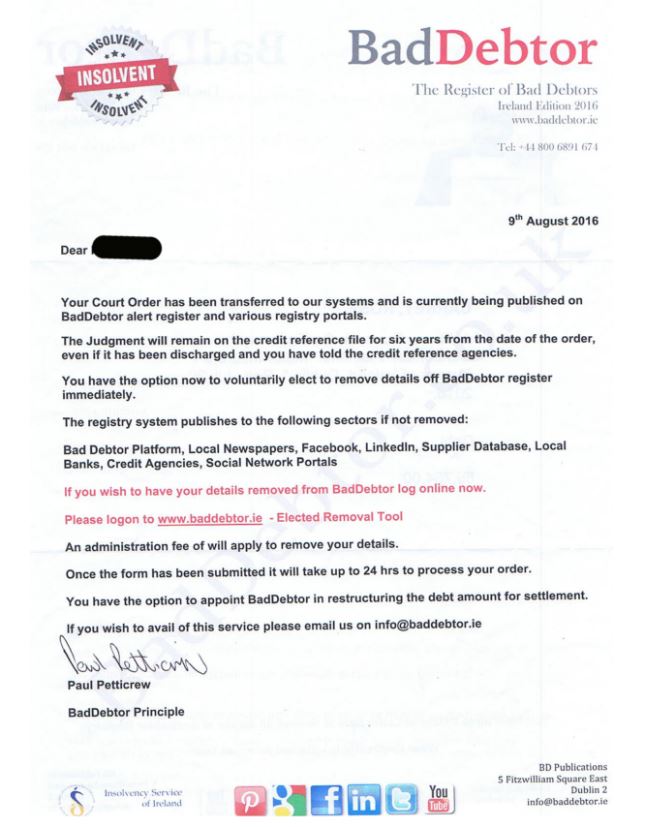The Looming Threat Of Federal Debt: A Warning For Homebuyers

Table of Contents
Increased Interest Rates
Rising federal debt often leads to increased interest rates as the government borrows more money, driving up demand in the bond market. This has a direct and significant impact on the housing market.
Impact on Mortgages
Higher interest rates directly translate to higher mortgage payments, making homeownership less affordable for many. This means that even with the same income, your purchasing power is reduced.
- Increased monthly mortgage payments: A seemingly small increase in the interest rate can dramatically increase your monthly payment over the life of the loan.
- Reduced borrowing power: Lenders will assess your debt-to-income ratio more stringently, potentially reducing the amount you can borrow. This means you may be able to afford a smaller or less desirable home.
- Higher overall cost of homeownership: The total cost of your mortgage will be significantly higher with increased interest rates, impacting your long-term financial health.
- Difficulty qualifying for a mortgage: With tighter lending standards due to economic uncertainty linked to high federal debt, qualifying for a mortgage becomes more challenging.
Impact on the Economy
Increased interest rates are a double-edged sword. While they can help curb inflation, they can also slow down economic growth. This can have cascading effects on the housing market.
- Reduced consumer spending: Higher interest rates make borrowing more expensive, leading to decreased consumer spending across the board, which impacts demand.
- Potential for recession: A prolonged period of high interest rates can trigger a recession, drastically impacting job security and significantly reducing housing demand.
- Decreased housing market activity: A slowing economy and tighter lending standards result in a less active and potentially volatile housing market.
Inflationary Pressures
A large national debt can fuel inflation, eroding the purchasing power of your savings and impacting home prices in unpredictable ways. This further complicates the home buying process for those already facing challenges due to rising federal debt.
Impact on Home Prices
While high inflation can initially drive up home prices, this is often unsustainable. The increased cost of building materials and other factors make homes less affordable.
- Increased cost of building materials: Inflation makes lumber, concrete, and other materials more expensive, driving up construction costs and, consequently, home prices.
- Higher property taxes: As home values increase due to inflation, property taxes also rise, increasing the overall cost of homeownership.
- Reduced affordability despite potential price appreciation: Even if home prices rise, the increased cost of living, driven by inflation, offsets this gain, making homes less affordable.
Impact on Savings
Inflation diminishes the value of your savings, making it harder to save for a down payment or closing costs. This directly impacts your ability to buy a home.
- Decreased savings growth: The rate of return on your savings might not keep pace with inflation, leading to a decrease in your savings' purchasing power.
- Increased difficulty saving for a down payment: Inflation makes it more difficult to accumulate the necessary funds for a down payment.
- Challenges in affording closing costs: Closing costs, such as appraisal fees and title insurance, also increase with inflation, adding further strain to your budget.
Government Intervention and Policy Uncertainty
The government may implement policies to address the federal debt, which could create uncertainty and volatility in the housing market. These policy shifts can significantly impact your ability to buy a home.
Potential Policy Changes
Changes in tax policies, housing regulations, or government-backed mortgage programs could significantly affect the housing market and the affordability of owning a home.
- Tax increases impacting homeownership: To reduce the federal debt, the government might increase taxes, potentially impacting mortgage interest deductions or property taxes.
- Changes in mortgage lending standards: Government intervention could lead to stricter lending standards, making it harder to qualify for a mortgage.
- Uncertainty and volatility in the market: Policy changes create uncertainty, causing volatility in the housing market and making it more challenging for buyers to make informed decisions.
Conclusion
The looming threat of high federal debt presents a significant challenge for prospective homebuyers. Rising interest rates, inflationary pressures, and potential government interventions can all impact affordability and stability in the housing market. It’s crucial to stay informed about economic trends and carefully assess your financial situation before making a major investment like buying a home. Understanding the potential effects of rising federal debt on your ability to purchase a home is paramount. Take the time to research, plan carefully, and consider the long-term implications of federal debt before making a home-buying decision. Don't let the looming threat of federal debt catch you unprepared. Start planning your home purchase wisely today.

Featured Posts
-
 Royal Mail Announces Stamp Price Increases Effective April 7th
May 19, 2025
Royal Mail Announces Stamp Price Increases Effective April 7th
May 19, 2025 -
 Ufc 313 Aftermath Pereira Breaks Silence On Loss And Future
May 19, 2025
Ufc 313 Aftermath Pereira Breaks Silence On Loss And Future
May 19, 2025 -
 Orlando 2025 Travel And Tourism Event Photo Gallery
May 19, 2025
Orlando 2025 Travel And Tourism Event Photo Gallery
May 19, 2025 -
 Eurovision Song Contest 2025 The Official Date And Location
May 19, 2025
Eurovision Song Contest 2025 The Official Date And Location
May 19, 2025 -
 Ufc 313 Livestream Guide How To Watch Pereira Vs Ankalaev Online
May 19, 2025
Ufc 313 Livestream Guide How To Watch Pereira Vs Ankalaev Online
May 19, 2025
